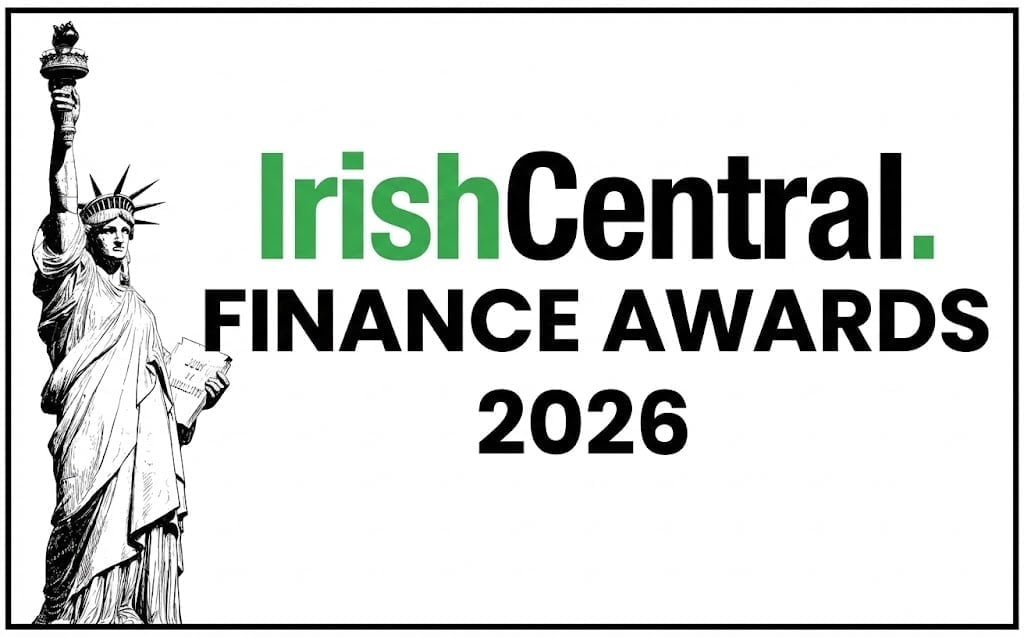There is anger, but no despair, over Ireland's plight from Irish American business leaders.
The Irish Voice attended our sister publication Irish America magazine’s Business 100 luncheon on Tuesday, November 30 at the New York Yacht Club, and asked some of the honorees and guests for their take on the Irish financial crises and bailouts.
Honoree Denis P. Kelleher, founder and chairman of Wall Street Access, believes the EU bailout was probably in the best interests of the Irish people.
“Europe has to keep Europe together, everyone tied together by common currency. Ireland had to accept help from somewhere after all, ” said Kelleher.
Kelleher believes Ireland has lost credibility and sensibility, and that the damage will be dangerous and lasting.
“What happened has reinforced my thoughts that most politicians are disingenuous and they only care about being elected,” he added.
“The Irish government needs to accept some real pain, cut out the idiotic socialist spending, the excessive giveaways like the minimum wage, and tax breaks to institutions to promote development, which has led to ghost towns,” says Kelleher.
"The bankers were crooks, they gamed the system,” added Kelleher, a native of Co. Kerry.
“They got away with it far too long -- where was the oversight?”
Ireland can get back on its feet, he says, but they need honest institutions and an "end to all the nonsense" that brought the banks down. He called for real input from Irish America and a new attitude from back home.
“They need to get back to basics and do the right thing, which is to own up to their faults and apologize,” he says.
Ireland needs to play to its strengths, Kelleher believes. Those strengths include hospitality and the food industry.
“I’ve seen Ireland go from being a Third World country to being top of the heap, and now it’s on the way to being a Third World country again,” he adds.
Emmett O’Connell, Business 100 honoree, believes that the EU pushed Ireland into accepting a bailout package for reasons beyond the Emerald Isle.
“The bond holders in the banks got away with too much. The EU bailout amounts to countries like France, Germany and the U.K. saving their own banks because they lent to Ireland,” he said.
“The European Central Bank is making Ireland the fall guy. The French, German and U.K. banks were most exposed to Irish banks,” he says.
“The past 10 years in Ireland was a fool’s paradise.”
His recommendations to Ireland to get out of this mess? Simple.
“Leave the euro. Restore the Irish pound (punt). Devalue the punt against the euro.”
O’Connell has staunchly opposed Ireland’s part in the European Union. “For every one euro Ireland brings to the EU, they take five euro worth of fish from the Irish seas,” he explained.
Honoree Peggy Smyth, vice president at Hamilton Sundstrand, shared her views on the Ireland’s bailout from the EU, a decision she believes was not taken lightly.
“The bailout was a difficult decision that was made carefully. But if the government believes it’s in the best interest of the people, then we should trust that,” she said.
“People are skeptical about the government, but they do have the most intimate knowledge of finances,” she says.
Smyth believes the world should learn from Ireland’s boom and bust.
“We can take what’s happening in Ireland as a lesson of how quickly fortunes can change,” she says.
Smyth wonders about the consequences of letting the Irish banks fail.
“I do think that the Irish government should have taken it slower regarding backing the banks, so that they had a clearer picture of what exactly would be."
A positive outlook on Ireland’s misfortune is refreshing, and Brian Stack, managing director of CIE Tours, maintains just that.
“Things are not as bad as they appear. The Irish banks have assets, and in three or four years things will be fine,” he feels.
The bailout, according to Stack, is simply “a line of credit. It might be used, or it might not be used,” he adds.
“At a 5.8% interest rate, it’s a pretty good option.”
Martin Kehoe, who works in the finance industry, says that Ireland has lost track of its priorities.
“The long term consequences can be positive if Ireland invests in its base -- education and keeping multinationals based in Ireland,” said Kehoe.
“The last five years saw Ireland lose sight of sensible policy. The political parties in Ireland need to be more unified, put politics aside and find a common ground for the good of the country.”
Honoree Kieran Claffey of Price Waterhouse Coopers, has some recommendations for the EU bailout money.
“The funding from the EU should be segregated between the government and the banking sectors,” he said.
Claffey, like many others, believes that Ireland’s low corporation tax is “key to maintaining a safe future.”
Claffey doesn’t place much hope in the Irish politicians.
“History has shown that governments have a short-term outlook on these things, and that the long-term decisions and implications weren’t thought through,” he said.
Earl Hurd of 1-800-FLOWERS, believes that the EU’s persistence on Ireland to accept a bailout package was fueled by jealousy.
“Ireland was bullied into taking that bailout -- the rest of the EU was jealous of the boom in Ireland. They used this opportunity to level the playing field,” he says.
Hurl believes that the Irish banks should have suffered the consequences of their own actions.
“Sometimes in life, people fail. The Irish government should have let the banks fail, and pay for the consequences, just like with people,” he said.
Mike Hemingway, Business 100 honoree, believes the Irish government and the Irish banks “are in bed together.”
Hemmingway believes that the EU bailout was needed “to bring order to chaos.”
What should the Irish government do now?
“Resign, en masse,” replied Hemmingway.




Comments